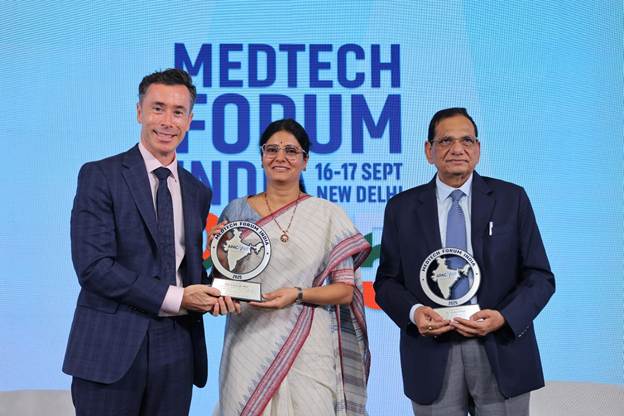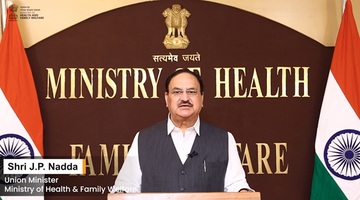At a major industry forum in New Delhi, senior government leaders framed India’s medical technology sector as central to both domestic health care reform and the nation’s global economic ambitions. The message was clear: India must evolve from a high-volume manufacturer into a high-value innovator.
A Sector on the Cusp of Transformation
The 11th Asia Pacific MedTech Forum opened in New Delhi this week with a sense of urgency and ambition. Union Health Minister Jagat Prakash Nadda, addressing the gathering virtually, declared that India’s future in health care would be shaped by its ability to harness advanced diagnostics, digital tools, and artificial intelligence.
“We are committed to making health care more affordable and accessible,” he said, noting that the MedTech sector could redefine how India meets the needs of its 1.4 billion citizens.
The tone of the forum reflected India’s growing belief that medical technology is not just about machines and devices, but about positioning the country as a leader in the global health economy.

Policies and Incentives to Drive Growth
Over the past three years, the government has unveiled a series of measures designed to spur the MedTech ecosystem:
- The National Medical Devices Policy, 2023, which provides a framework for regulation, manufacturing, and exports.
- An R&D and innovation strategy aimed at encouraging clinical research and indigenous product development.
- Medical Device Parks, modeled on the Andhra MedTech Zone, to create specialized hubs for production, testing, and branding.
- Incentive programs such as the Production Linked Incentive (PLI) scheme and the Promotion of Research and Innovation in Pharma-MedTech (PRIP) initiative.
Ministers stressed that these efforts were not about replicating global products cheaply, but about creating original, world-class innovations that could serve both domestic and international markets.
The Balancing Act: Innovation, Access, and Global Integration
Speakers at the forum, including Minister of State Anupriya Patel and NITI Aayog member Dr. Vinod K. Paul, argued that the sector’s growth must balance three priorities: encouraging cutting-edge research, ensuring affordability for rural and underserved populations, and aligning with global regulatory standards.
India’s ambition is not without obstacles. Industry leaders caution that clinical trials remain underfunded, regulatory processes fragmented, and accessibility in rural areas limited. Scaling up manufacturing, they note, risks undermining quality if oversight is not rigorous.
Yet, as Patel remarked, India has the potential to “move from being the world’s pharmacy to also being the world’s MedTech innovator.”
Toward “Viksit Bharat 2047”
The MedTech push is tied closely to Prime Minister Narendra Modi’s vision of “Viksit Bharat” — a developed India by 2047, the centenary of independence. Officials see the sector as critical not only for public health but also for India’s standing in global supply chains.
The New Delhi forum, drawing regulators, researchers, and companies from across the Asia-Pacific, underscored that vision. Whether India can shift from volume to value — from low-cost manufacturer to innovation hub — may determine its place in the next generation of global health care leadership.


